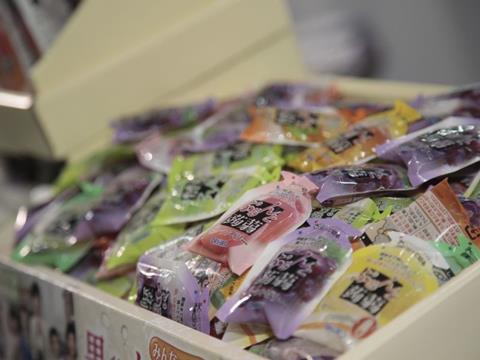
Sean Riley, senior director, media and industry communications, PMMI, The Association for Packaging and Processing Technologies, explores the evolution of digital printing and explains why it is poised to "pop".
Digital package printing allows brands and manufacturers to respond quickly to customer demands while improving their supply chain, reducing warehouse costs and waste and enjoying faster time to market. There is a significant opportunity for digital printing as CPGs and OEMs work to keep up with the explosion of SKUs, according to a joint white paper from PMMI, The Association for Packaging and Processing Technologies and APT, The Association for PRINT Technologies. The white paper, Breadth of Press Offerings for Digital Packaging Printing, reveals the digital printing sector welcomes trends like retailer-specific packages, micromarketing, sustainability and traceability concerns, as they are driving companies toward digital packaging applications.
Traditional print technologies are mature, with a large installed base of equipment and new machines being added to the field every month. In contrast, digital is in its infancy, with a tiny installed base of equipment but high CAGR growth trajectories. Estimated digital printing output has less than one percent of total packaging volume across labels, folding carton, flexible and corrugated, presenting a significant opportunity for growth for brand owners, technology suppliers, CPGs, retailers, contract packagers and converters. Since digital print in packaging is considered a relatively new technology, no one is deemed to be late to market.
It is estimated that over 900 digital packaging presses have been sold in the U.S. in the last decade according to the APT, but that number is expected to increase nearly twofold to 1,600 presses by 2022.
Drive for Digital
CPGs care most about image quality and how their product projects on store shelves. When asked what the top digital print advantages are for their brand, “higher quality” received the highest rating, according to PMMI’s white paper. CPGs see an opportunity to use digital to create packaging of value. The top advantages after image quality involve costs and the supply chain, with factors like warehousing efficiency, speed to market and shorter runs driving adoption. Brand owners also said that digital could eventually offer a more affordable option for their needs in light of shorter runs and the ability to meet increased demand for products during promotional campaigns.
That said, digital can cost more up front, which brands see as a risk. However, the always-advancing digital technology can help them achieve things previously out of reach and enhance packaging applications’ value potential. Breadth of Press Offerings for Digital Packaging Printing offers real-world examples of how digital printing technology is used to improve label and packaging solutions.
In one case study included in the white paper, a global CPG company with a strong presence in personal care expanded into private labels for hotels and restaurant chains with the aim of broadening its business footprint and revenue. The company needed more print jobs with shorter custom runs for each hotel and restaurant and with different graphics, content, logos and languages for each. Those factors positioned digital as the best option for its production and versioning needs. Digitally printed in-mold labeling allowed the company to enter a new market segment and increase its total revenues.
Strategy for success

For CPGs and brand owners, it is essential to find ways digital can boost speed to market and improve the supply chain. Consumers’ expectations are changing in how they want and need to interact with the brands they buy, and the omnichannel is shifting how consumers buy. Digital printing allows brands to be more agile with their packaging and use their consumer data to test market to customers based on geography, seasonality, buying habits, age and so on.
Digital can be used for creative promotions and to create buzz for the brand in the market. CPGs have experienced success using short-run digital print to design new and interactive packaging and, in turn, create a quick uplift of sales figures in one-off promotions. But the new design still needs to connect the customer with the product using existing iconography, shapes or logos. In other words, the package cannot be different just for the sake of being different.While using digital for packaging print can create a buzz in the market, the true transformation that digital will offer CPGs comes via the supply chain. Digital print used in a targeted fashion for consistent, long-term, project-based work can reduce costs associated with transportation, warehousing and obsolescence.
It also allows CPGs to get products to customers faster so they can adapt to ever-changing market dynamics. The supply chain and packaging workflow include significant waste, especially when it comes to the time involved. Using digital to reach the market faster is a great goal because any incremental time-saving will lead to less downtime and increased revenue.
For equipment, software and supplies manufacturers, success in the digital market is incumbent upon an ability to support a variety of packaging applications and develop products that can compete with the productivity of conventional equipment, while emphasizing the value-add that comes with digital. As for the converters, the ability to educate customers and print buyers about “what is possible” is critical, as well as building a business plan for growth that includes hiring salespeople and operators ready for the technology.
With digital printing on the cusp of the mainstream, and to meet the industry demand head-on, PMMI launched The PACKage Printing Pavilion, the industry’s main stage for package printing innovations, which will debut at PACK EXPO Las Vegas 2019 (Sept. 23-25; Las Vegas Convention Center) after a successful debut at PACK EXPO International 2018.













